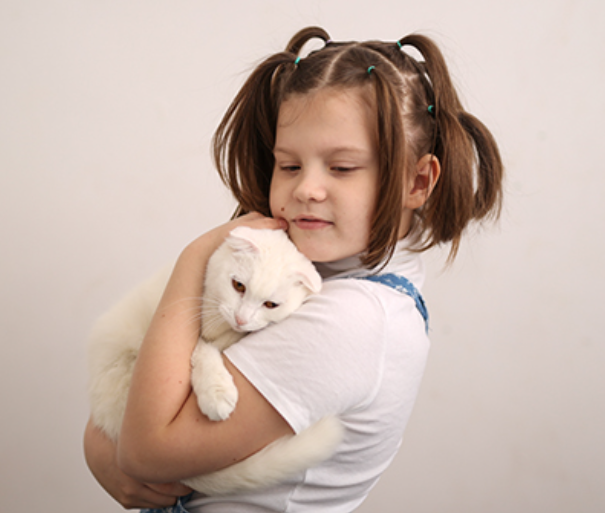
Governor Ned Lamont today joined other state officials and animal welfare advocates for a news conference at the headquarters of the Connecticut Humane Society in Newington to commemorate Child Abuse Awareness Month and Prevention of Cruelty to Animals Month and highlight the proactive work being done among Connecticut state agencies to cross report accounts of animal cruelty for assessment and possible investigation to determine the safety of children in households where these reports have occurred.
Numerous studies have shown that there is a strong correlation between instances of animal abuse, child maltreatment, and other forms of interpersonal violence, including domestic violence and elder abuse. Professionals refer to this correlation as “The Link.”
Over the last several years, staff from Connecticut state agencies, including the Connecticut Department of Children and Families (DCF) and the Connecticut Department of Agriculture (DOAG), have been strengthening their partnerships to respond to “The Link” by cross reporting these instances to each other. Upon receiving reports of reasonable suspicion of animal cruelty from state, regional, and municipal animal control officers, DOAG staff are mandated to forward that information to staff from DCF, who then review whether any children in those homes could be impacted.
“It’s clear that in homes where animal cruelty has occurred, child abuse or other forms of domestic violence may be present,” Governor Lamont said. “By cross reporting this information between state agencies, our staff can proactively investigate whether other forms of violence are occurring in a home and take measures to protect any children, adults, or animals who may be impacted.”
“Our continued collaboration with DCF and other state and local partners is essential to increasing education and outreach around the link between child abuse and animal cruelty,” Connecticut Agriculture Commissioner Bryan P. Hurlburt said. “Through training and education, animal control officers are key partners in recognizing and responding to signs of cruelty and sharing that information appropriately to protect the safety and wellbeing of both children and animals.”
Connecticut has seen demonstrated increases in animal cruelty reports over the past several years, due in part to increased education and outreach efforts by both DCF and DOAG. For example, DCF has made cross reporting a part of the agency’s mandated reporter training. More recently, across its 14 offices, DCF has also more than doubled the number of cross-reporting liaisons who are responsible for helping to triage cases between DCF social workers and animal control officers and provide monthly training and educational support to teams of staff.
In 2024, DOAG sent DCF 90 reports, while in that same year DCF sent a total of 107 reports to DOAG. Last year, “The Link” was apparent in 16 reports that met the standard for an abuse/neglect investigation based on the initial information provided in the written report. Of those 90 reports, 13 were made on families that were already involved with and receiving supports from DCF.
A review of research studies shows that:
- Animals were harmed in 88% of homes where a child was physically abused.
- 75% of female survivors of domestic violence report their pets were threatened or intentionally harmed by their partner.
- Children exposed to domestic violence are three times more likely to be cruel to animals.
- 45% of caseworkers working with the elderly encountered animal abuse or neglect co-occurring with elder abuse.
Anyone can make a report of animal cruelty by contacting their local animal control department in the town where those concerns have been noted or by contacting DOAG’s Animal Control Office at 860-713-2506 or AGR.AnimalControl@ct.gov. Those making a report can remain anonymous.
A reasonable suspicion of child maltreatment can be made to DCF’s Child Abuse and Neglect Careline by dialing 1-800-842-2288. The hotline is open 24 hours a day, 365 days a year. Callers can remain anonymous.